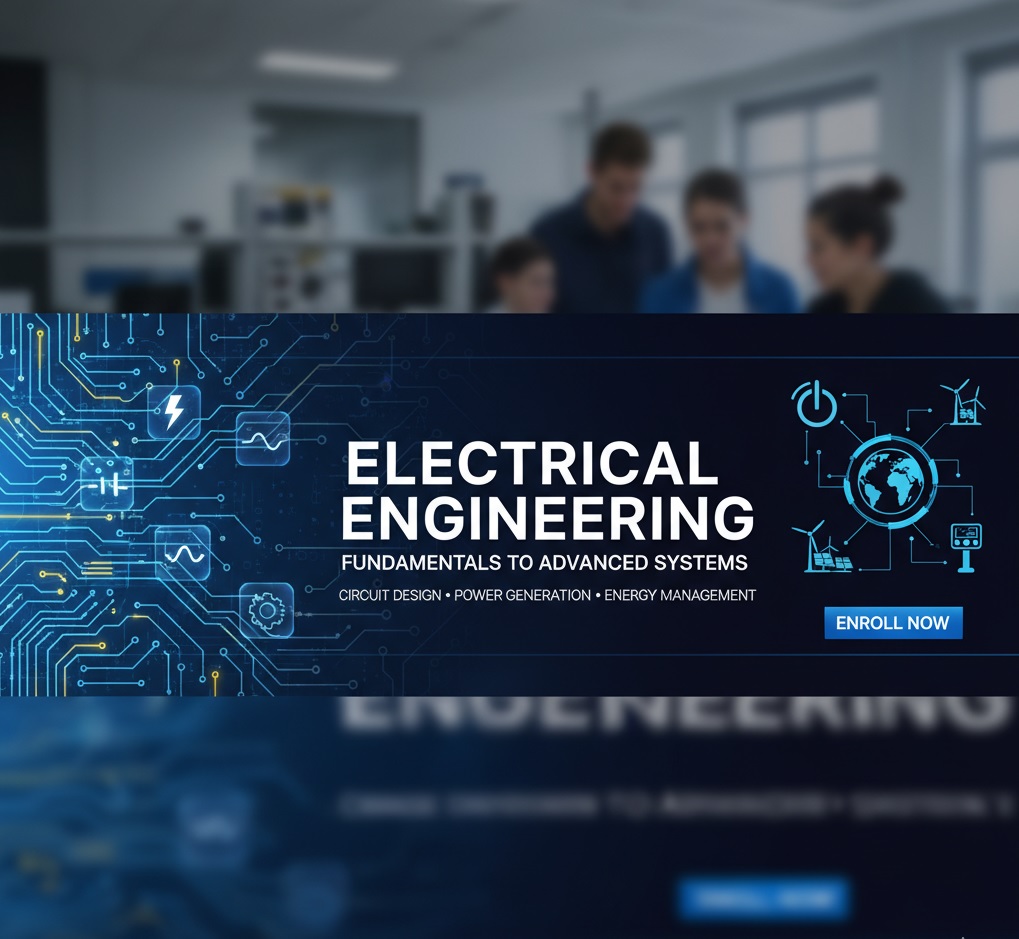Electrical Engineering Fundamentals
This course provides a deep understanding of the fundamental concepts of electrical engineering, from the basics of current, voltage, and resistance to advanced topics such as AC/DC analysis, power generation, and energy management systems. Students will gain both theoretical knowledge and practical insight into real-world electrical systems. Through engaging modules and lessons, learners will explore circuit design, electrical measurements, transformers, motors, and renewable energy integration. By the end of the course, participants will be ready to apply electrical engineering concepts in professional or academic environments.

This course includes:
- 22 video lessons
- Study materials & resources
- Quizzes and assessments
- Certificate of completion
- Lifetime access
- Mobile & desktop access
About This Course
This course provides a deep understanding of the fundamental concepts of electrical engineering, from the basics of current, voltage, and resistance to advanced topics such as AC/DC analysis, power generation, and energy management systems. Students will gain both theoretical knowledge and practical insight into real-world electrical systems. Through engaging modules and lessons, learners will explore circuit design, electrical measurements, transformers, motors, and renewable energy integration. By the end of the course, participants will be ready to apply electrical engineering concepts in professional or academic environments.
What You'll Learn
Course Curriculum
Introduction to Energy Management in HVAC
This module introduces students to the concept of energy efficiency and management in heating, ventilation, and air conditioning (HVAC) systems. It explains how electrical engineering principles are applied to improve energy performance, optimize controls, and ensure sustainability in building systems.
Fundamentals of Electrical Circuits
This module covers the foundational principles of electrical circuits — the heart of all electrical engineering. Students will learn about voltage, current, resistance, Ohm’s Law, and how to analyze simple DC and AC circuits. Practical demonstrations and real-world visuals will help solidify these core ideas.
Electrical Machines and Transformers
This module introduces students to the core electrical machines that drive industrial and residential power systems — motors, generators, and transformers. Students will understand their working principles, construction, and energy conversion process between electrical and mechanical forms. The module also covers transformer theory, losses, efficiency, and maintenance practices for real-world electrical networks.
Power Generation, Transmission & Distribution
Explains how electrical energy is generated, transmitted, and distributed. Covers generation systems (thermal, hydro, solar), transmission lines, substations, and load management. Students gain a full view of how electricity travels from plants to consumers.
Prerequisites
- Basic understanding of physics and mathematics
- Familiarity with algebraic equations
- Interest in electrical systems and technology
Instructor
System User
MEP Engineering Expert